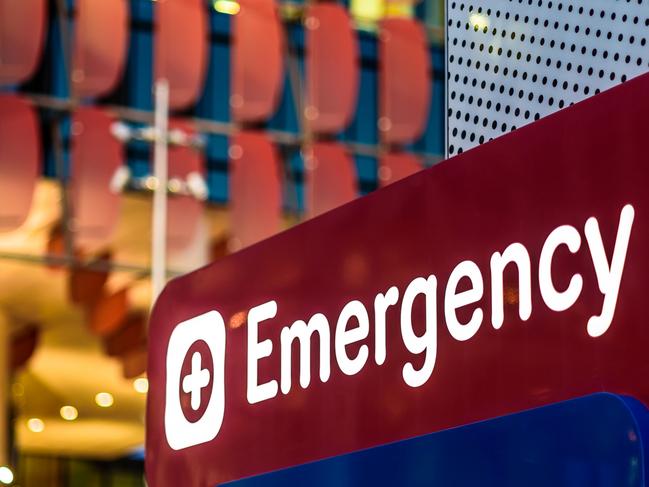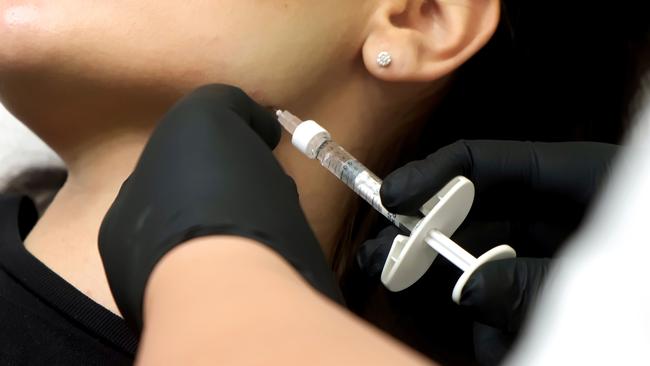Two more women hospitalised with suspected botulism after anti-wrinkle injections
Two more women are being treated in hospital for suspected botulism, which authorities believe is linked to a western Sydney at-home clinic offering anti-wrinkle injections.
NSW
Don't miss out on the headlines from NSW. Followed categories will be added to My News.
Two more women are being treated in hospital and a third woman is in intensive care after a suspected botulism outbreak linked to a western Sydney at-home clinic offering anti-wrinkle injections.
NSW Police said the three women had all received the same anti-wrinkle injection from the same person at a residence in Guildford on January 11.
NSW Health issued a public alert on Friday after a 51-year-old woman was admitted to Auburn Hospital with the illness, before being transferred to Westmead Hospital where she remains in a stable condition on Saturday morning.
Investigations are focused on the unregulated product linked to all three cases.

NSW Health executive director Dr Jeremy McAnulty said the case was a reminder of the potential side effects of unregulated cosmetic injections, and to be sure to receive cosmetic injections by authorised practitioners.
“Investigations into the specific anti-wrinkle product that was used are underway and NSW Health is working with the Health Care Complaints Commission and NSW Police on this matter,” a NSW Health spokesperson said.
“Cosmetic injections, if used incorrectly, could result in serious harm and even death in the most serious of cases.
“Botulism, although rare, can be fatal, which is why it is so important that anyone receiving cosmetic injections does so under the supervision of an appropriately registered health practitioner.”
Health Minister Ryan Park said the “misuse of cosmetic medicines can cause considerable health risks, which is why in NSW, only medical or nurse practitioners, or nurses acting under their direction are permitted to administer cosmetic medicines to people.”
Cosmetic Lounge director Jelena Vucica Shah has worked in the industry for more than two decades, and said reports of “black market” products and practices were on the rise as unqualified practitioners tried to meet high demands with cheap Botox.
“I think there are practitioners out there that are dodgy and definitely cutting corners, such as diluting the product, not buying from the proper medical companies that produce the product, or buying it online or overseas from a dodgy website,” she said.

“I’ve been approached on Instagram with people trying to sell me cheap Botox and filler products, so I’m sure if they’re doing it to me they’re doing it to other people.”
Ms Vucica Shah said botulism could only be caused by a practitioner using fake or unregulated products.
“There are two major global companies that produce Botox products, Dysport and Botox, and two other companies Letibo and Xeomin that are quite well-known,” she said.
“If they (practitioners) are injecting anything other than those it is probably not regulated by the Therapeutic Good Administration (TGA).
“I just can’t imagine if they were using the right product, whether it was at home or a proper clinic, this would happen … so it must come down to the choice of product.”
The Australian Health Practitioner Regulation Agency (AHPRA) said consumers should look out for “red flags” when they consider services, such as the costs being well below average or advertised on private social media groups.
“Injecting in a home environment increases risks and may be illegal … patients should ensure their injector is a registered health practitioner by asking for their registration number and looking them up on the national register of practitioners,” an AHPRA spokesperson said.
“Cosmetic procedures using medicines such as anti-wrinkle injections with Botulinum Toxin or dermal fillers using Hyaluronic Acid are far riskier than a haircut or manicure.
“If something doesn’t feel right then patients should trust their gut and hit pause.”
Botulism symptoms can appear for up to two weeks following injections and may include progressive weakness, difficulty swallowing, drooping eyelids, blurred or double vision, and difficulty breathing.
Anyone experiencing these symptoms is advised to seek immediate medical attention.





